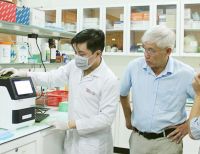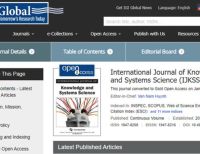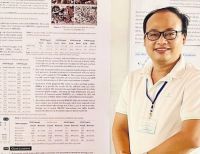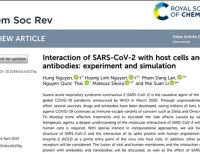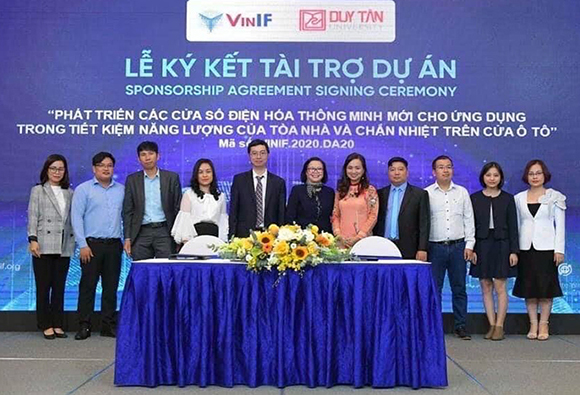
MSc. Dang Ngoc Si and Dr. Le Hoang Sinh (second and third from left)
VINIF was founded in 2019 to support organizations and individuals doing research, technology development and other innovative projects. The fund gives priority to technological research related to Big Data, AI and machine learning tools to create solutions of tangible benefit to the community.
In addition, it evaluates and funds projects which promise significant advances and social impact. This year, 28 projects, in computer science, artificial intelligence, automation, renewable energy, new-generation materials, genes and cells, were selected out of 139 submissions. By October, grants from 2.5 to 10 billion per project had been paid out already, to enable researchers to quickly purchase materials and equipment, publish in international journals and register patents.
To obtain VINIF funding, projects must meet the following five criteria:
-
Project applicabilty
-
Available research development capacity and infrastructure
-
Innovative and scientific significance
-
Socioeconomic impact,
-
Convincing objectives and technological value
So far, the projects selected are all highly practical and provide long-term social value. Climate change is beginning to affect our lives and setting major challenges internationally, so the DTU research group proposed to develop new smart windows that can change in color to adapt to light inside and outside a building or vehicle. The project will maximize the reduction of greenhouse gas emissions and save power by using renewable energy. After strict evaluation and review by the Scientific Council, the DTU project obtained VINIF funding from November 2020 to October 2022.

DTU’s laboratories, used for the Smart Electrochemical Window project
The project combines material technology for the manufacture of new electrochemical color-changing components and the Internet of Things (IoT) for the development of a smart control system. The smart control system will include:
-
A control circuit
-
Control software
-
An Android or iOS app
The smart window will be conveniently controllable in various ways, through a central control panel on a wall, using computer software or a smartphone app. Alternatively, the smart window will operate fully automatically based on signals from integrated light intensity and temperature sensors.
“To realize this project, our research group will use the university’s advanced telecommunications, microcontroller and electronics laboratories, as well as equipment from the Center for Advanced Chemistry and the DTU Center for Electrical Engineering (CEE),” explained Dr. Le Hoang Sinh, Director of the Center for Advanced Chemistry of the DTU Institute for Research and Development and promoter of the project. “On behalf of our team, I’d like to thank the DTU leadership, who have continually invested in state-of-the-art labs to support us in this and future projects. We’d also like to thank the VINIF for funding us with the capability to implement a highly advanced research project. We will work together to complete this successfully, as a foundation for related future technology development.”
Previously, several other highly practicable products were developed at DTU, including:
-
A 3D anatomical simulation of the entire human body and related systems, for use in medical education, which won the 2017 Vietnam Talent award and a Sao Khue award in 2018
-
The eCPR, cardiopulmonary resuscitation first-aid training system, which won a Sao Khue award in 2020
-
The DTU-Vent ventilators, models 1, 2 and 3, with the complete functionality of a professional medical ventilator, meeting all the requirements for emergency use and Covid-19 treatment.
(Media Center)
The project “Developing Smart Electrochemical Windows for Energy Saving Applications in Buildings and Heat Shields in Cars”, developed at DTU, was recently funded by the VinGroup Innovation Fund (VINIF).












